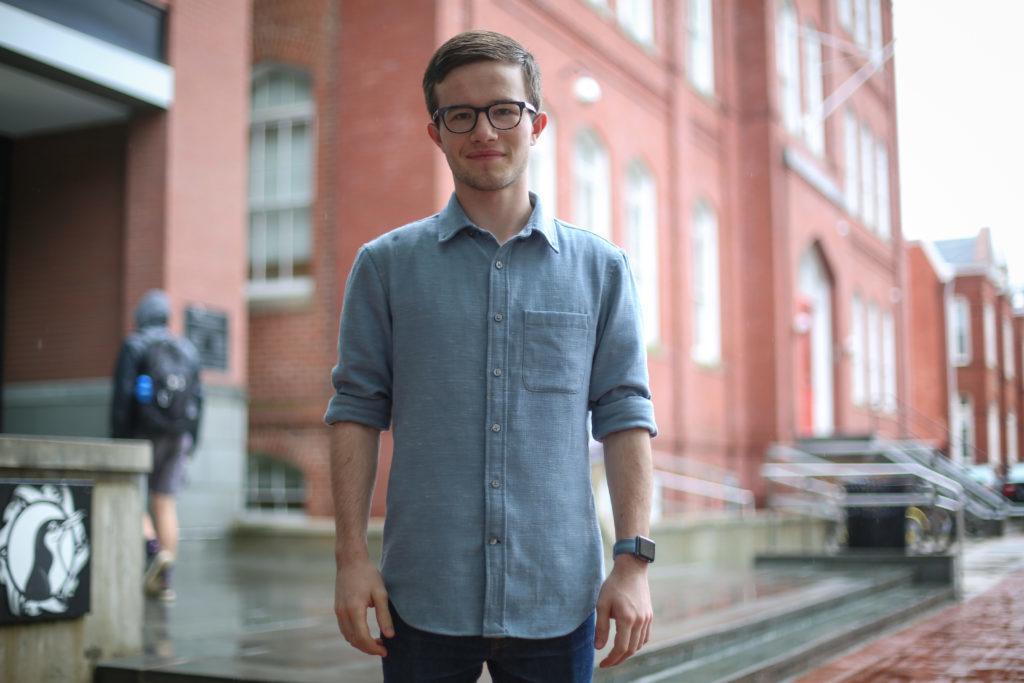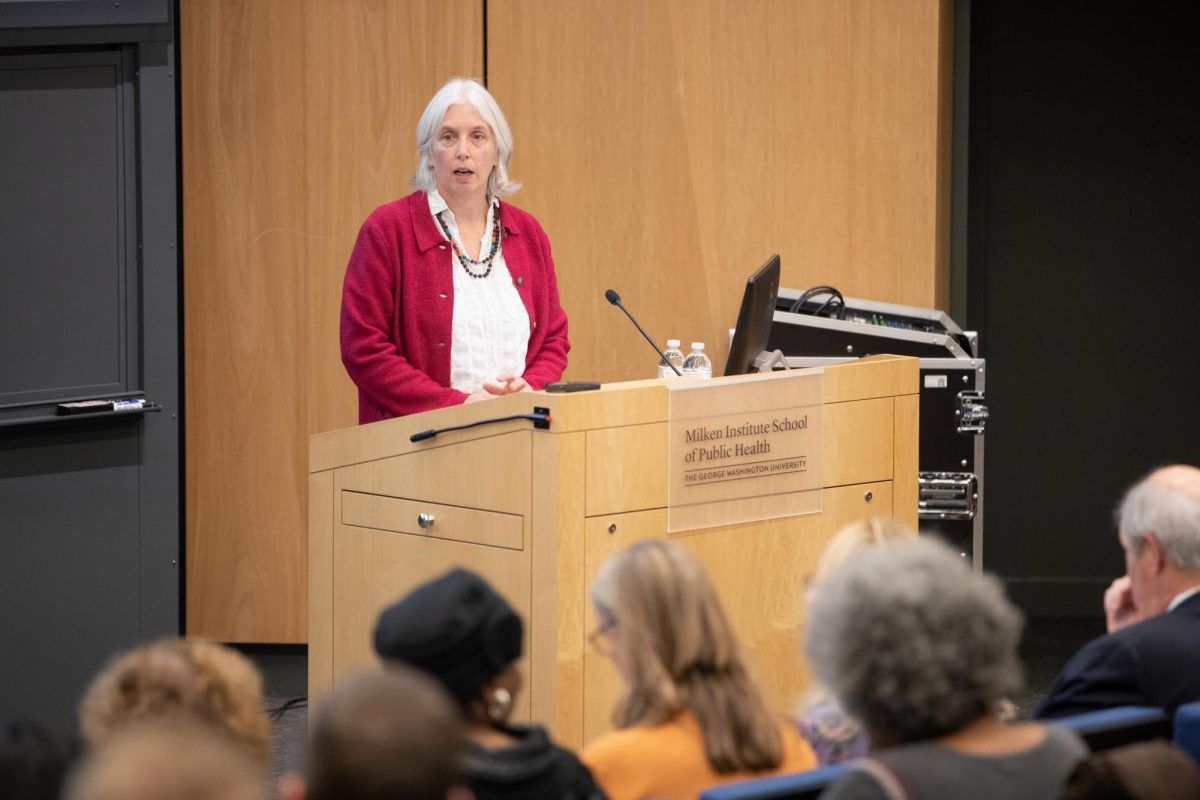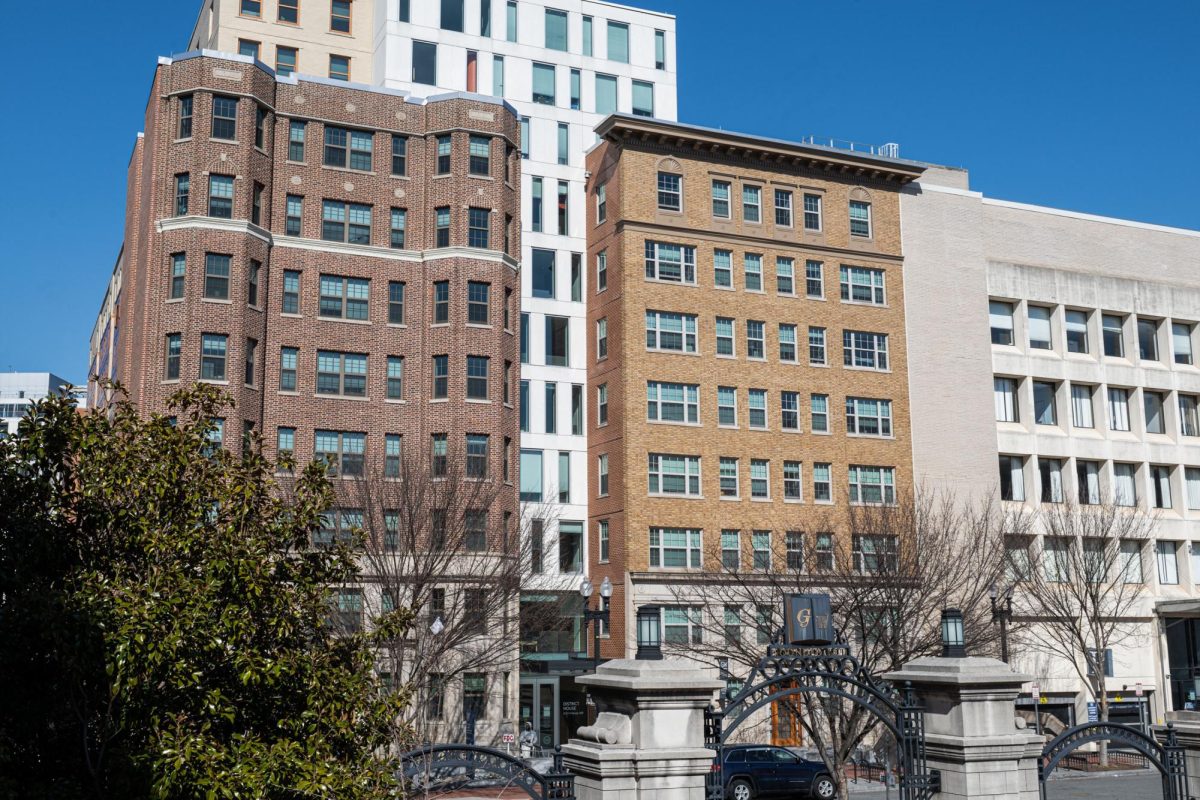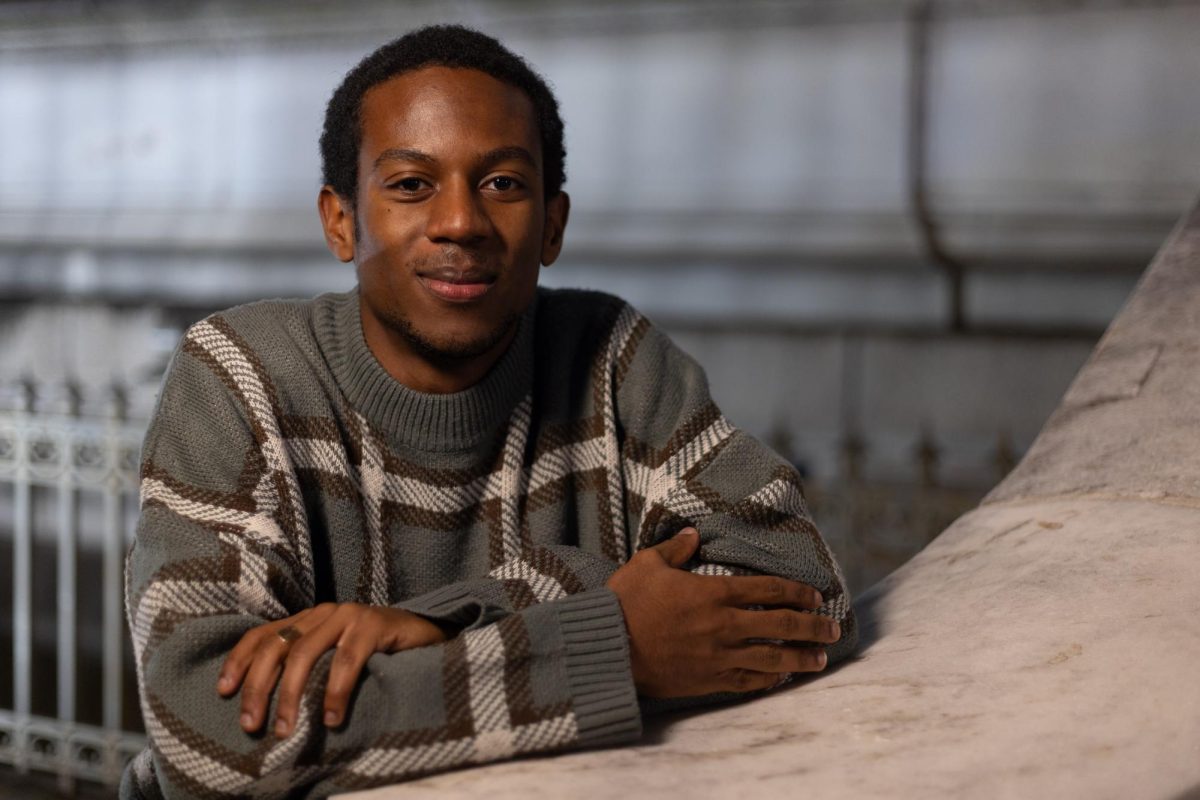A student and neighborhood leader is helping 16- and 17-year-olds voice their opinions in D.C. politics.
The Foggy Bottom and West End Advisory Neighborhood Commission, a neighborhood governing group, passed a resolution in a 5-2 vote Wednesday supporting a D.C. Council bill that would lower the voting age in the District to 16 if approved. Commissioner and sophomore James Harnett, who drafted the resolution, said the legislation will help engage younger audiences in decisions that affect them, like education or gun control.
“Candidates don’t often cater to our needs and our concerns, but if we grant 16- and 17-year-olds the right to vote, then we need to make sure that those students are making informed choices and are utilizing accurate information,” Harnett said.
The Youth Vote Amendment Act of 2018 was introduced to the D.C. Council last month with the goal of boosting civic engagement and promoting voting as a “lifelong habit,” according to a press release from Vote16DC, an organization campaigning to lower the voting age in the District. Takoma Park, Hyattsville and Greenbelt, Md. implemented similar initiatives allowing 16-year-olds to vote in local elections in the past few years, but the release states that D.C. would be the first major U.S. city to make this change if enacted.
The act is currently under council review and will be discussed at a hearing in late June or early July, Harnett said. If the council passes the bill with a simple majority, it will head first to the mayor’s desk for approval and then before Congress, which has 30 days to override the D.C. Council’s decision.
Harnett said since 16-year-olds have the ability to work, pay taxes on their earnings and drive cars, granting young people the right to vote is a logical next step.
“If we trust them to make informed choices in those scenarios, voting should also be a right they should be able to exercise at 16,” Harnett said.
Harnett added that the change has to be executed on a smaller scale because the last time the federal voting age was changed from 21 to 18 in 1971, both two-thirds of Congress and three-fourths of states had to approve a constitutional amendment.
Still, Harnett said the bill will encourage local candidates to recognize the power that young people have at the ballot box. He said he hopes D.C. will “set the bar for where this conversation needs to go.”
“If we can have an honest conversation with ourselves about what it is we want young people to be doing and what we expect from young people, then we’ll be able to be that trendsetter,” Harnett said.
Commissioner Patrick Kennedy said at last week’s ANC meeting that government representation must reflect people who have “stakes” in public issues.
“Young people have the burden or the benefit of living with the consequences of decisions made by elected officials for a much longer period of time,” he said.
Kennedy said providing an opportunity for younger voters to become invested in politics is “not an unqualified positive,” and these voters are likely to be just as well informed as 18-year-old voters.
“The people who are likely to take an interest at 16 and 17 years old are at least informed enough on the issues, even if they don’t have the perspective that comes with having held a full-time job or anything of that nature,” he said.
Commissioner Florence Harmon, who voted against the resolution, said at the meeting she couldn’t support the bill because voters need more “life experiences” – like paying taxes – to have a complete understanding of some of the bills that come before the council.
“I think you kind of need that experience to get away from home and be on your own and develop your own views,” Harmon said.
Ellen Shearer, an expert on voting rights and a professor of journalism at Northwestern University, said legislation to change the voting age usually pops up at the same time as national events that affect students – like last week’s shooting at a high school in Texas – as young people become energized and motivated to speak out.
“When young people are being victimized by gun violence and can’t have a say when lawmakers are not passing gun control legislation or gun safety legislation, it’s a compelling argument,” she said.
Shearer said if the bill passes, the D.C. Council would be forced to pay more attention to the issues students care about, like school safety and equal access to education.
“Young people today are active and engaged and are thinking about their future and how the government can help or hurt them,” she said. “They’re in a bad position because what they’ve got to do is get people who can vote, who are older, to agree with them.”
Lizzie Stricklin contributed reporting.





